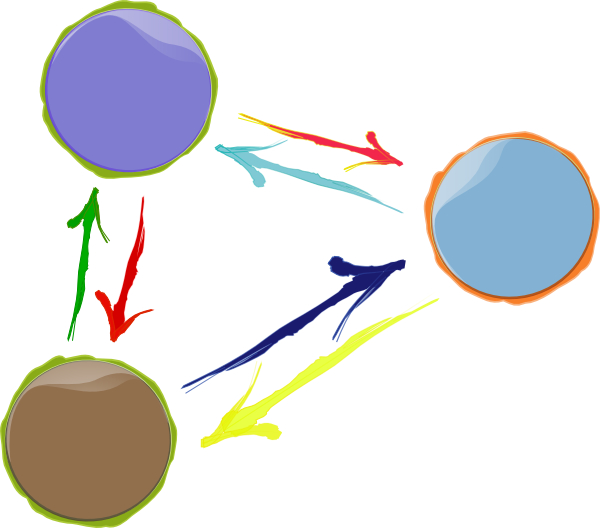In order to find new possibilities for the recycling of specific types of organic matter, we need new ideas and new technologies. The group that analyzed the sub-system of ‘sustainable entrepreneurship’ want to speed up innovation on Texel. This could be a big opportunity for our vision, when those innovation efforts are directed towards innovative ways to use types of organic waste.
The group of students analyzing how to improve ‘feed Texel’ focus in their future vision on the increase of local food production. This might be a threat and opportunity to our vision both. By a larger food producing industry you increase the need for fertilizers. These could be imported as it is done at the moment almost exclusively, but we strive in our future vision to eliminate this import as much as possible. However, an increase in agriculture can also increase the demand for compost which will be beneficial in the implementation of our plan, that is focusing on maximization of the use of produced compost. The increase in agricultural activity can also create more organic waste input. This is a delicate topic to address, because it could be seen both as desirable as undesirable the same time.
In order to make the education system on Texel more sustainable, the group of students working on this topic proposed a number of methods to increase the amount of children staying on the island. An possible implementation with their vision will be an integrated scholar programme in and around our proposed organic center: ‘De Farm’. Students from different ages can be taught about the ways to reduce (organic) waste and how the organic matter will be recycled in the best ways.
In the same line of thought is the cooperation with the sub-system of ‘sustain lifestyles’. Educational programmes and workshops could be organized in ‘De Farm’ to teach the inhabitants of Texel in which ways they can contribute toward a sustainable Texel when it comes to the management of organic matter.
A little friction could be mentioned when comparing our future sub-system visions with that of the sub-system ‘How to get there’. The proposed plan of that group consist of a smarter way of transporting waste from the island and (chemical) fertilizers towards the island. In our future vision this practice should be made redundant; enough compost will be made by recycling organic waste to fertilize all the agricultural lands.
When the population of Texel abruptly starts to increase, several frictions among the different visions of the sub-systems occur. The group of students analyzing the sustainable accommodation on Texel proposed a maximization of the accommodation throughout the entire year. This will lead to a significant waste increase as well, because Texel knows a high tourism rate only for a few months of the year at the current situation. We also mentioned a lower involvement of tourist to participate in waste separation schemes, which we see as an essential part in our future sub-system.
Finally we see a big opportunity with the future sub-system of ‘Regenerate inorganic waste’. The students working on this proposed a full reuse of inorganic waste, looking for innovative production processes incorporating waste materials. We see many possibilities of cooperation with this vision, as organic materials can be mixed with inorganic materials (after purification) to create valuable products. An example is coffee residue mixed with plastic fiber to make paper protection sheets (see: Verdraaid Goed).
